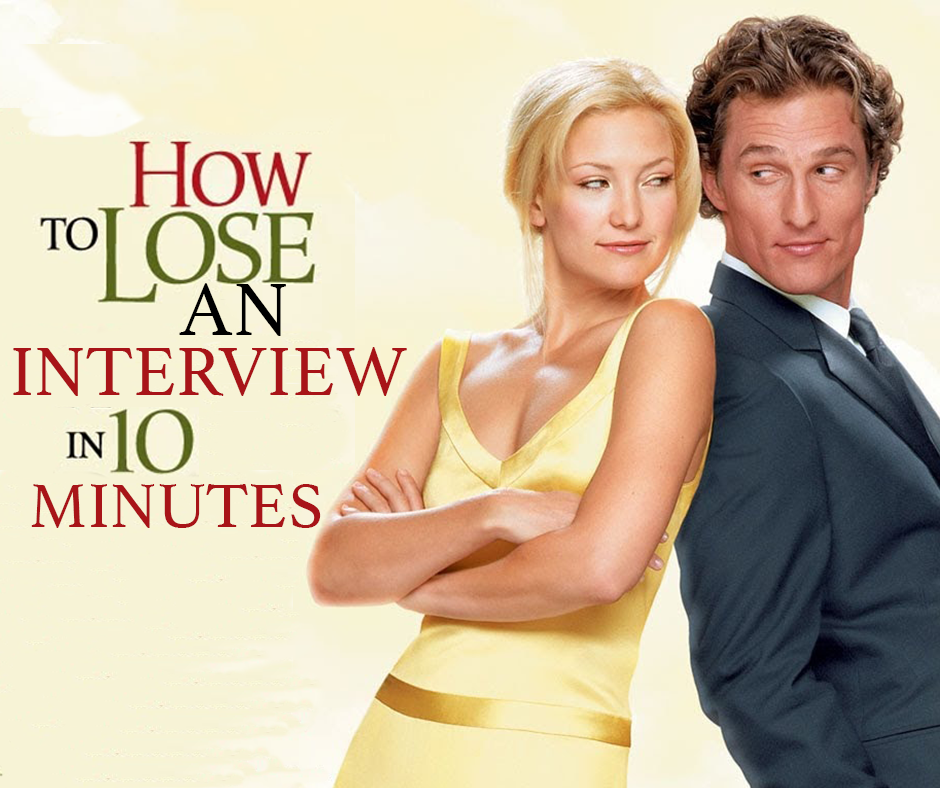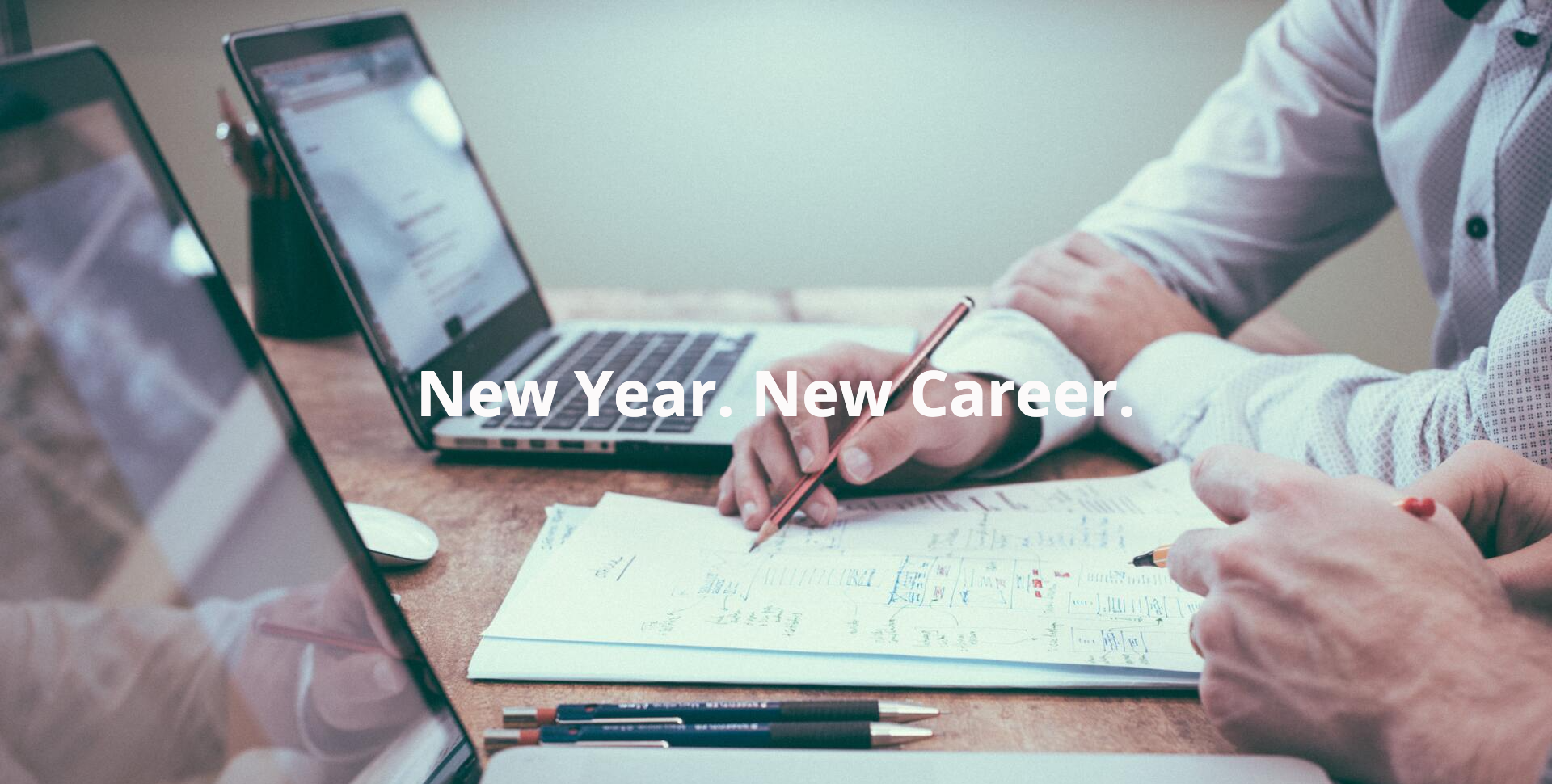BLOG
Relieve anxieties and gain insights on how to make the most of your career

You can recover from many things in an interview—being late or being too early, even spilling your “virtual coffee” won’t necessarily lose you the job. However here are a selection of interview mistakes that can guarantee you lose the interview—and how to avoid it happening to you— within 10 minutes. You seem moody and you mutter: You can lose the job in the first minute of the interview by not thinking about your initial impact; sounding flustered, confused, irritated, being too loud, or inaudible - any of these could lose you the job from the outset. Being overly friendly and calling the interviewer ‘mate’ from the off is never a great idea either. Your presence is not a (given) present: Don’t underestimate the importance of building rapport with the interviewer from the start. You don’t necessarily have time to build a rapport during the walk to the lift out to the interview room given that the current method of interviewing during the pandemic will be over a computer screen. If you’re not great at small talk, practice—it gets better. Make eye contact, and be fully present (stop running over question scenarios in your head) and remember to smile . It can make a big difference, especially when you’re nervous. Make sure you dress appropriately: Wearing a Hawaiian shirt or being overly formal with a 3 piece suit are probably not going to get you the job. Given the current pandemic, a smart casual approach is a more sensible option. Similarly, remember to check the mirror before jumping on your zoom call, make sure stray hairs are tucked away and there are no bits from lunch still in your teeth—take a breath and get yourself centred before starting the call. First impressions count; make sure they are for the right reasons. Make sure your on-line surroundings are appropriate: Nothing is worse for hiring managers to interview candidates when the candidates have plenty of other things going on in the background. Try to create a calm space/room in the house where you can concentrate on the interview rather than having children clambering over you or pets singing away in the background creating background noise. Remember to also make sure your phones and devices are on silent, a phone buzzing in the background or other general distractions will only be to your detriment. You haven’t done your research: Asking inane questions such as “what exactly do you do here?” will undermine your credibility - at best, they demonstrate that you haven’t bothered to do your homework. Ask questions about how the role will grow and develop, not queries you could have answered by spending two minutes with Google. It’s a good idea to have some questions to ask prepared, but be flexible. You don’t want to quiz them about something they have already covered during the interview. You were a little bit fluid with the truth: Get caught out in a lie - even a minor one - and it can lead to instant rejection. Don’t be tempted to adjust your employment dates, or exaggerate your contributions or grades. Any inconsistencies between your CV and LinkedIn profile or the information that you give at the interview and you’ve lost the trust of the interviewer - and no employer is going to hire someone who they think is slippery with the truth. You make empty brags: While interview nerves can make some people shy about their achievements, others get too focused on selling themselves. Top-line statements, “I’m a great salesperson” or “I’m a creative maverick” won’t impress anyone unless you might back it up with evidence. You might be the most talented candidate they could possibly hope to employ, but you still need to be able to talk during the interview about lots of real-life examples that show your capabilities, otherwise, you are unlikely to convince them. Practice talking about what you’re good at, so it sounds convincing and effective but not big-headed. When offering evidence, describe the problems you face, what you did, how you did it and the final result. You’re rude about your current / ex-boss: You might want the job to escape your nightmare boss, but don’t tell your interviewer that. Talking negatively about people is never a good idea. Candidates who demonize their previous boss, or are disparaging about their colleagues or customers are simply emphasising that they have had problematic relationships at work in the past - and that is far from attractive to an employer who wants someone to work well within their team. Keep in mind: Most industries are smaller than you realise and someone on the panel might know your “incompetent” manager - another good reason to be diplomatic. You don’t sell yourself well enough: Sometimes, a candidate can seem ideal on paper but there’s no spark. This can happen because you haven’t built rapport or didn’t show enough enthusiasm for the job - or because you weren’t selling yourself. If you simply repeat information that is already in your CV, what you say can seem dull and predictable. Make sure you have something interesting to say and make sure what you say ads value. Waffles should just be for breakfast: Plain and simple, don’t waffle. Practice compressing evidence into short stories that are no more than a minute or two long. As you speak, watch the interviewer for clues - if they seem distracted or check their watch or the door, you may have been speaking too long. Candidates often say too much. Interviewers can get bored if you drone on and then this only amplifies them to find something negative in what you say. Besides, if you say too much you don’t give the interviewer the chance to cover the full range of questions, engage in conversation and as previously mentioned build a rapport.










